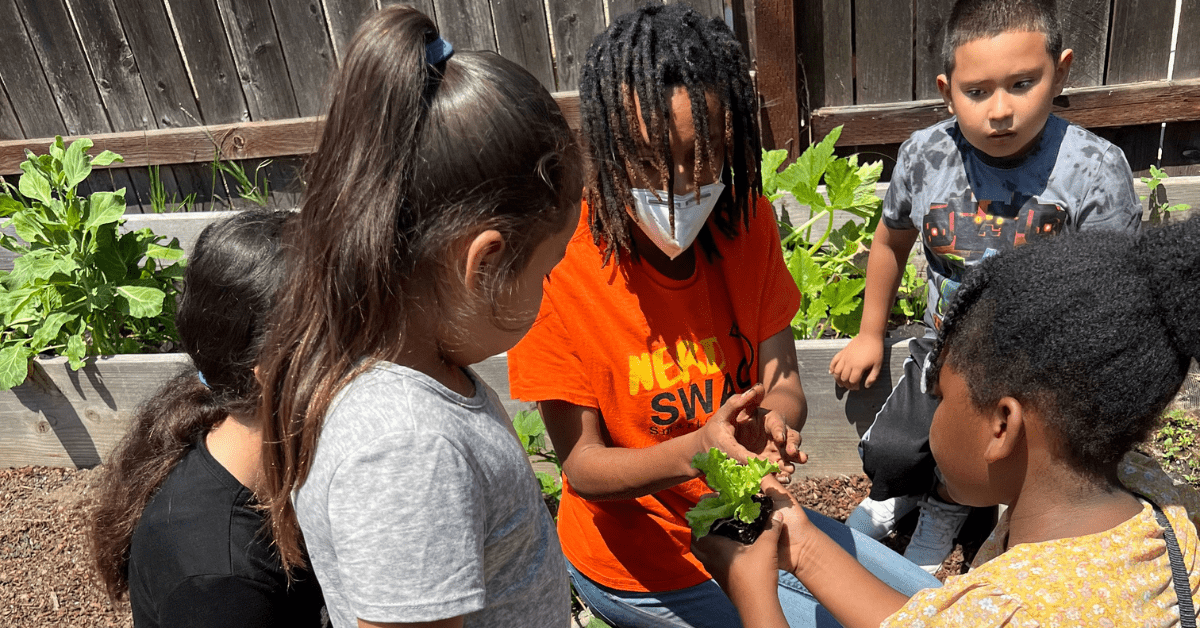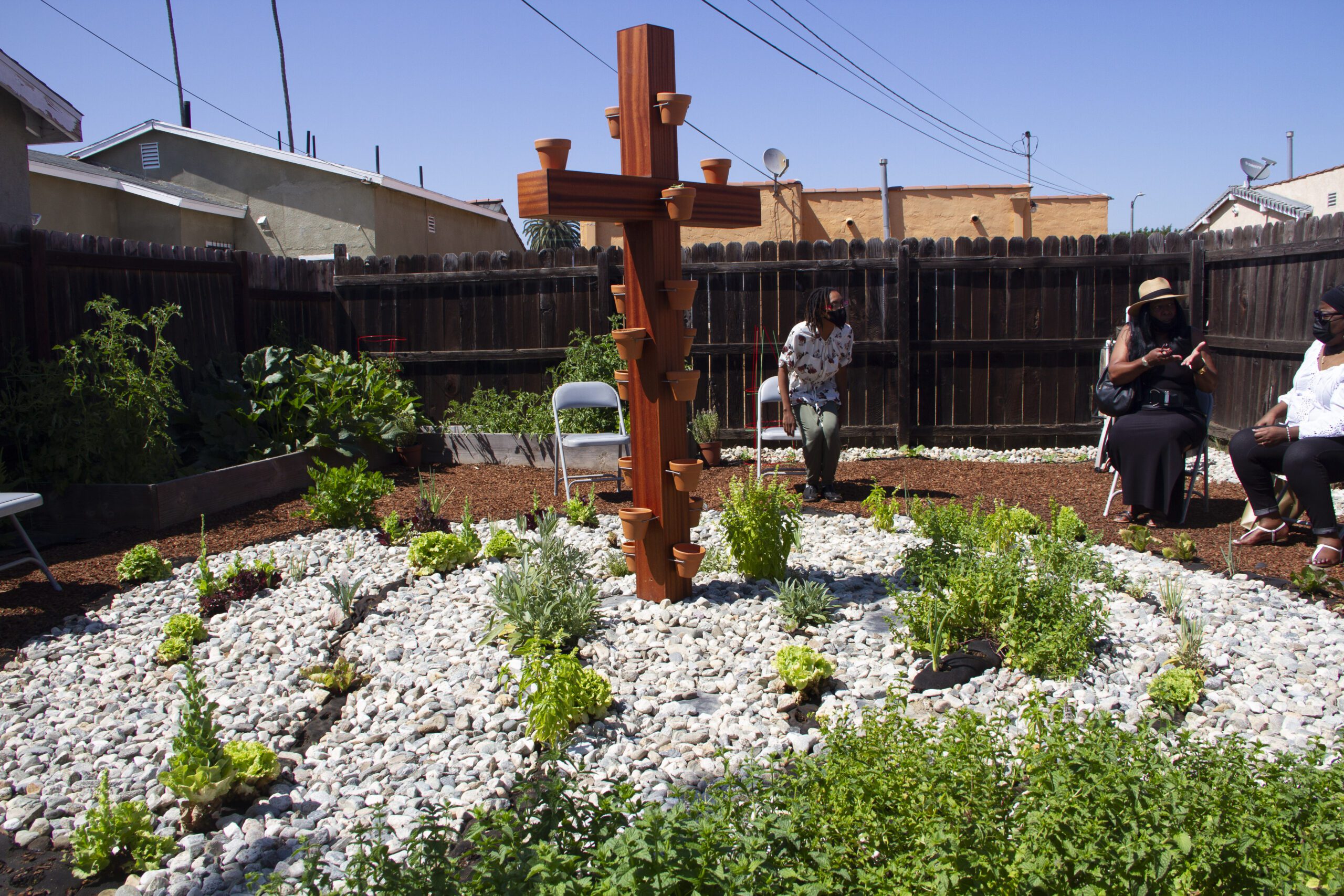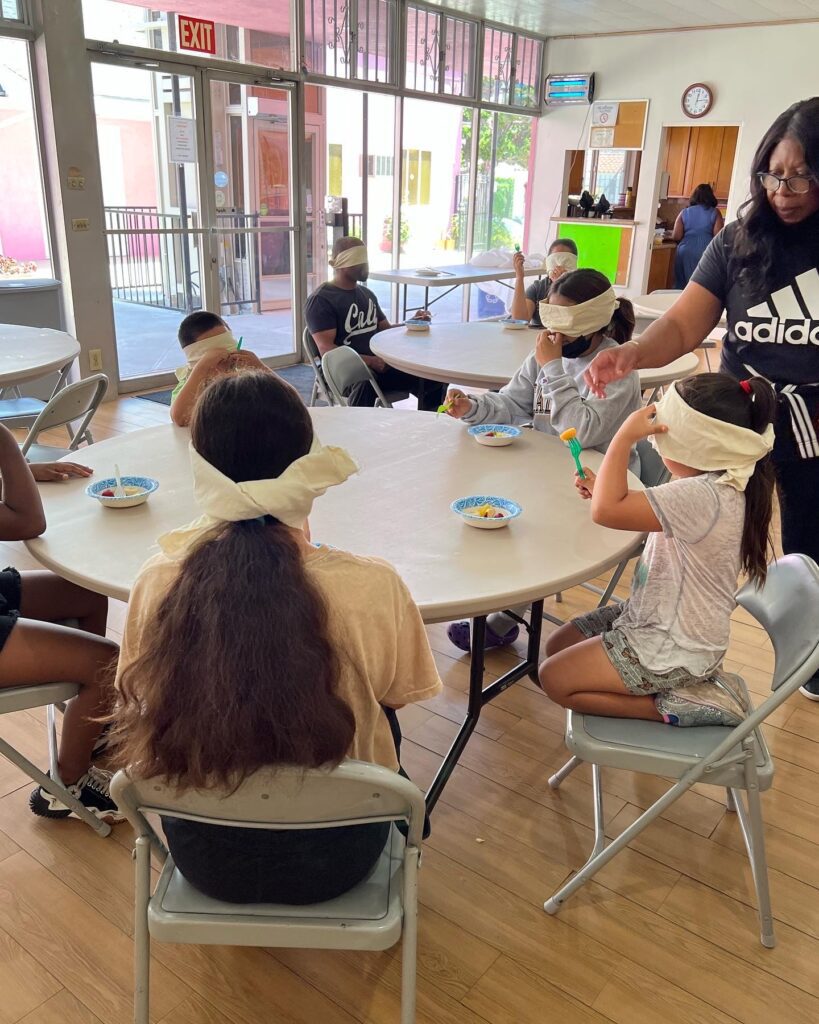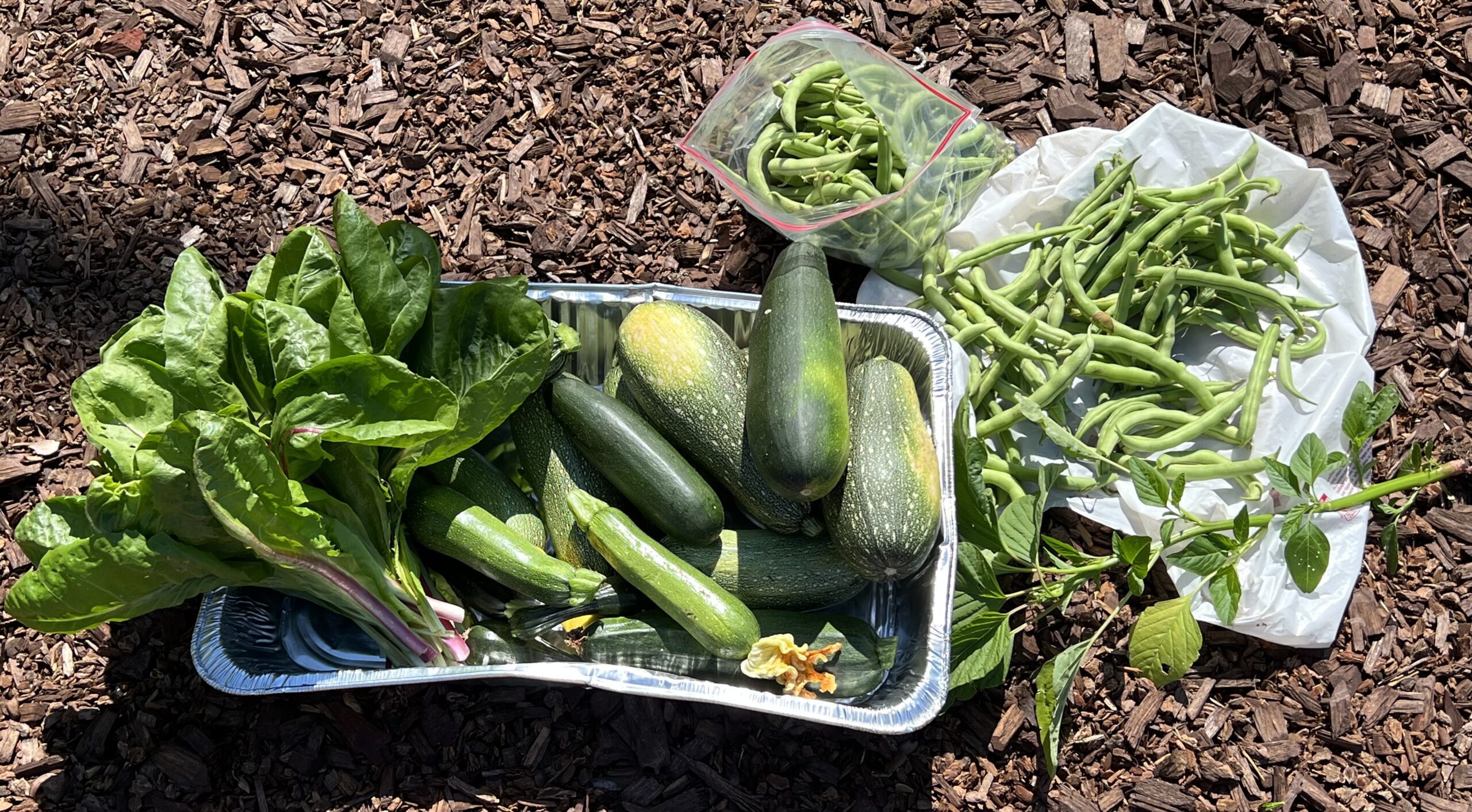Jennifer Oliver is an ordained itinerant elder in the African Methodist Episcopal (AME) Church. She has a PhD in food science and her ministry focuses on empowering individuals to empower their food system. She is originally from Birmingham, Alabama, but now ministers in Pasadena, California. Jennifer worked as an academic for several years before pursuing ordained ministry. With such a drastic change in career fields, she had no intention of going back, and the Holy Spirit knit together a specialized ministry field that uses her gifts and skills.
While at Fuller Seminary, Jennifer had a professor with a background in biochemistry. She has since used the knowledge base she gained for ministry as well. Jennifer launched her own non-profit The Manna Movement Collaborative. Alongside her nonprofit work Jennifer also uses her food science background to help get local producers into grocery stores.
The vision for both sides to Jennifer’s work is to eradicate food insecurity by using a community based system approach. The Manna Movement Collaborative works with individual partners in the community—churches, nonprofits, or food related business partners—to connect them to local growers. This way the money exchanged stays in the community and is circulated for the benefit of that community.
Food access, distribution and innovation
Jennifer wants to get people involved in food product development and commerce, giving the example of singer Patti LaBelle. Patti came out with a product called “Patti’s Pies” and because her name was on it, the pies sold very well. So Jennifer hopes to identify people in communities that have brilliant food product ideas and get them into grocery stores so that money can come back and benefit their community. “If I can get one Patti’s Pies idea—and there’s people here that have them—and give them the tools to get their product up, to push it to market on a larger scale, then that can have an immense impact on the community that surrounds them.”
All the projects Jennifer works with revolve around three basic areas: food access, distribution, and food innovation. In these areas Jennifer has helped communities and churches set up community gardens, nutrition programs, mobile produce trucks that are able to get fresh produce to people in food deserts, and to become distribution centers for local farmers.
One UMC congregation decided they wanted to focus on food justice and Jennifer helped them design a prayer and produce garden. Using her background in worship, she was able to help them design a garden with over 600 plants, including a labyrinth. At this same congregation Jennifer has done a summer program for kids called God’s Little Gardeners. This program is designed to help kids get curious and involved with creation and the environment, while also taking care of our bodies in the form of nutrition and making snacks from the garden.
No walls
In all of this Jennifer is still working out the pastoral side of her ministry, but has a vision for planting a church. Before the pandemic she said that God gave her a vision for a congregation that had “no walls—meaning outdoor space, online presence, and community facing.” In the work she does right now she sees the beginnings of a church plant. For her it is not just a side mission, but it is essential. She sees this work as essential, because Jesus fed people. “He took care of physical needs, and he took care of the spiritual needs of the people. He took care of the social-emotional needs of the people. He practiced this sacrificial love that causes people to be together in community. That is how we should demonstrate the gospel of Christ … I feel like my ministry not only helps them in that expression, but I feel like the ministry also helps them have this transformational encounter with God that they may not have experienced before within the four walls of the church.”
Start where you are to pursue food justice
Jennifer’s advice for any congregation looking to get more involved with food and food justice is to start with what you have. You don’t need a big plot of land to grow food. You can start growing food with just a couple of pots. Or maybe it simply involves connecting with a community organization that is already doing something you have a passion for and seeing how you can be involved with them. “Maybe you can be a branch of what they’re already doing.” Assess what the needs of the community are and go from there. Jennifer really encourages a collaborative and community based approach.
At the end of the day Jennifer says her mantra is “I empower people to empower their food system.” She wants to work herself out of a job and get communities to the point where she isn’t needed anymore. “I’m like the catalyst.” Jennifer is beginning to see that in one particular community where they carried on while she was gone on vacation. She received a text from a volunteer lead saying how much people are loving the produce that is harvested for the food pantry. “That text from her was an indication that all the seeds that I have been planting and watering over the past year are embedded in some good soil and we have yet to see the fruit that it will produce.”






